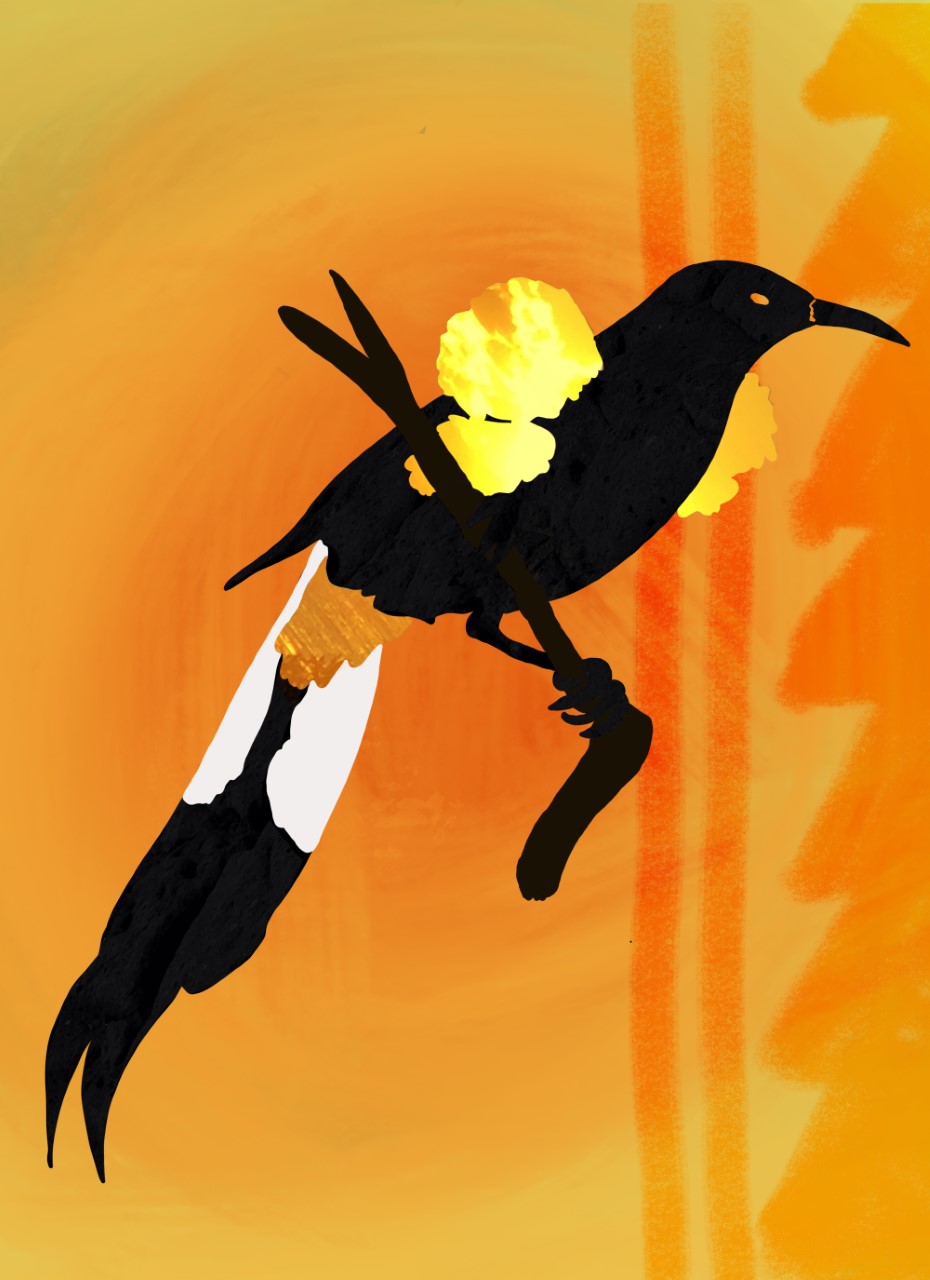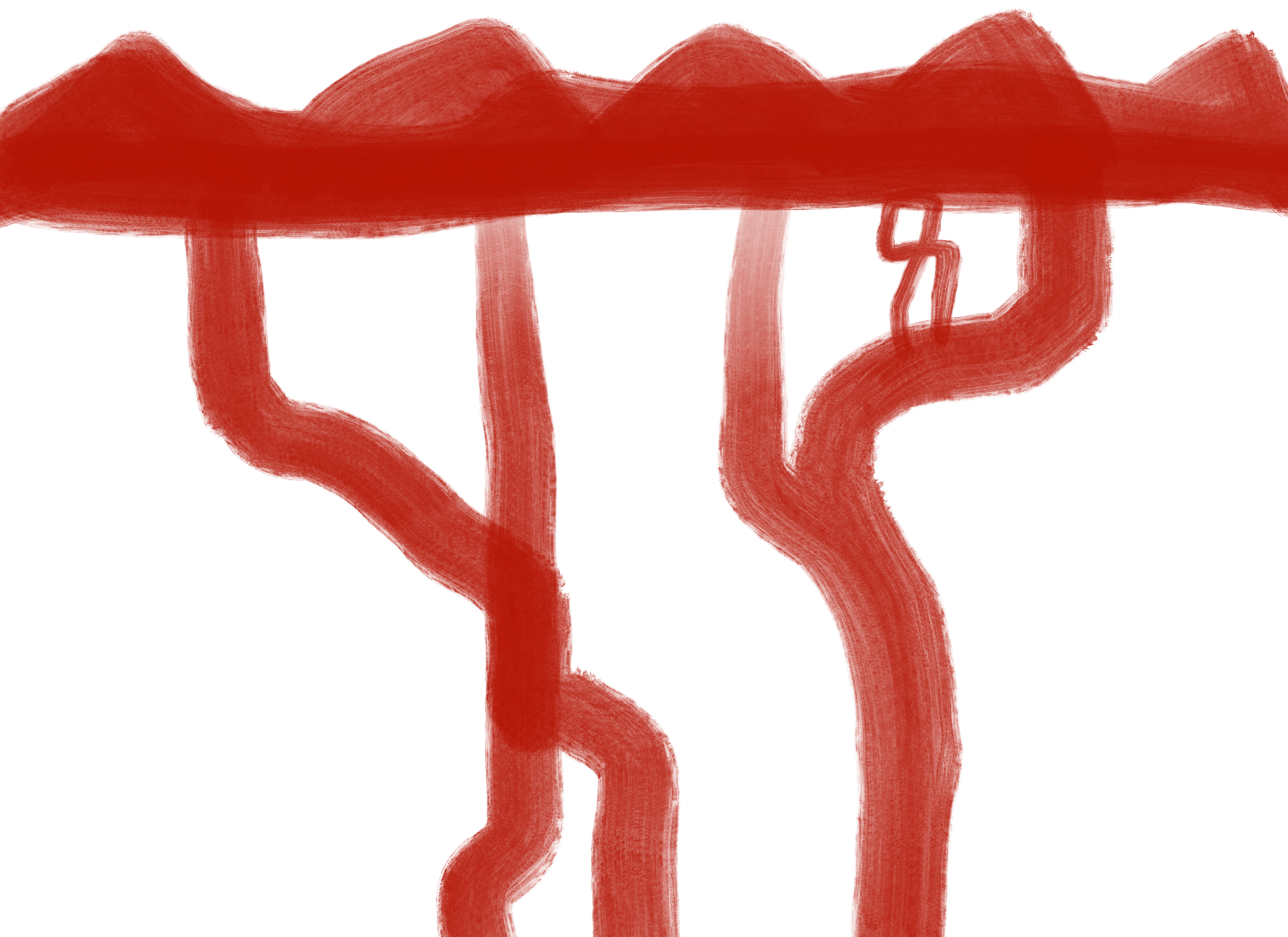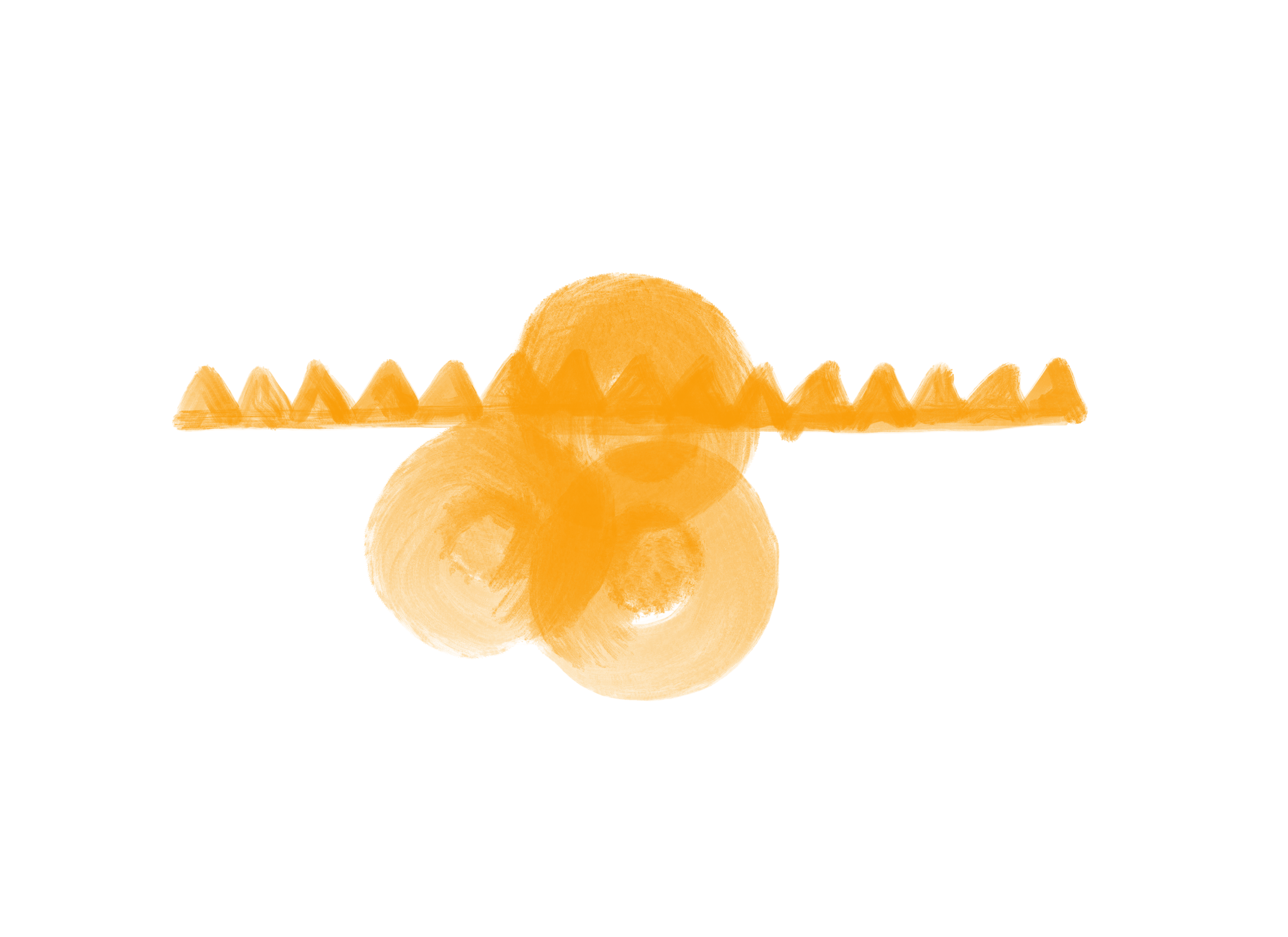Anuhea Parker

Artist Statement
Like my kūpuna (ancestors) before me, I weave together the stories of my family, culture, environment, and spirituality into my work. My poetry explores the complexities of the Native Hawaiian identity, especially as it relates to displacement, loss, and growth. I am interested in how themes of spirituality & religion, love, and the ecological degradation of the endemic fauna and flora of Hawaiʻi are connected.
Bio
Anuhea Parker is a Kanaka Maoli (Native Hawaiian) poet from Maunalua, Oʻahu. Parker is a Poetry Fellow at the Institute for Diversity in the Arts at Stanford University, where she is currently working on her first collection, a chapbook entitled "HONEYCREEPER." In her free time, she enjoys going to the beach, spending time with loved ones, and eating her mom’s food.
Email: keanuhea@stanford.edu
H O N E Y C R E E P E R

E nā mamo o ka ʻāina aloha
a me nā poʻe mai nā wahi mamao,
aloha nui kākou.
Several million years ago, before humans touched the sands, a songbird had found its way to the islands of Hawaiʻi. Slowly, through adaptive radiation, the songbird evolved into a myriad of new species, each designed for a specialized niche. When the early Polynesians arrived, the birds were immediately treasured, used to create beautiful feather capes, helmets, and kāhili. Now, due to habitat loss, invasive species, and disease, only eighteen of the known fifty-six species still exist, with many of the remaining birds facing extinction themselves.
Through the lens of Hawaiʻi’s endemic honeycreepers, I explore the role of conservation in my life as it relates to love, loss, identity, and growth.
Mahalo palena ʻole to my family, friends, teachers, and the IDA community for supporting my journey.
ʻUla ʻAi Hāwane
(Ciridops anna)
extinct
When the night stretches and stretches and stretches,
let it go. Take as much
as you can, shove it under
hollows and in decaying branches.
Disfigure your own mana.
Carry your own heart to the altar.
There is percussion here, only performative.
Forgetting how to hold a home.
Your foot shot straight down
in my chest like I was already gone, soft
rotten pulp.
Last night, I cut my fingernails and left
them scattered. I am staring into
the sun and forgetting the shape
of a mouth.


Kiwikiu
(Psuedonestor xanthophrys)
critically endangered
There is a clearing and in that clearing, there is a bird-catcher.
At his feet pulp and brown--always brown--
leaves, soggy in their last. These are the
ones that sink into the ground and forget
shape and function.
He is not nectar, but there are pockets of
it along the branches.
Green. Vibrantly against gray brown brown
brown. The bird-catcher himself carefully removes three shining
feathers before releasing it. He will not make it become.
In all stress, I plucked myself bare.
ʻIʻIWI
(Drepanis coccinea)
threatened
These are the small, important bones buried
here. In the soil, they are wrapped in kī leaves,
always seeping out the bloodied nectar
as if it is a gift. ʻŌhiʻa bloom
and the sky darkens as birds begin to attack--
I want to feel what belongs to my home.
Each day I leave the place that I call home
in migration, desperate like those buried
without ritual. Swallowing each attack,
each vowel, knowing one day all will leave.
Take me away; there is design blooming
across my chest like the mold of nectar
that has turned brown and rotten, the nectar
my ancestors see festering at home.
Where is the space for a homeland? A bloom
is trying to open before being buried.
A forgotten shadow gets up and leaves.
It speaks war and does not know what to attack.
Some days my language is an attack
on my pride. Birds drunk on flowers’ nectar
learned to avoid being trapped on the same leaves.
A red chance to explore away from home,
for the scars on my back to be buried,
and the taste of my own tongue to bloom.
Today I would like to be in my bloom.
This new disease is a foreign attack.
Do not tell them where iwi are buried.
Honeycreepers chase the sweetest nectar.
Teach me relearning. Recreate my home.
My bones are now sheltered by these wrapped leaves.
I feel the path the wind takes when it leaves,
the way it gently unfurls each new bloom.
My posture is the same shape as a home.
It’s caught in my mind that when Paiʻea attacked
he said: Victory is like a nectar--
Store this feeling in your gut to be buried.
During the afternoons that my home leaves,
I’ve been buried in the lehua blooms,
yet survived the attack. Spaces filled with nectar.

Recommendations by the Artist
- Visit a forest right after it rains!
- Follow me on Instagram @keanuheaparker
